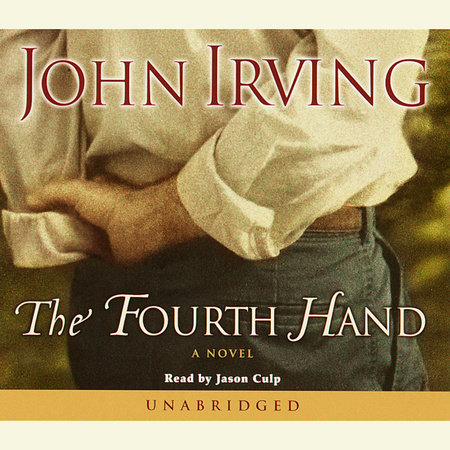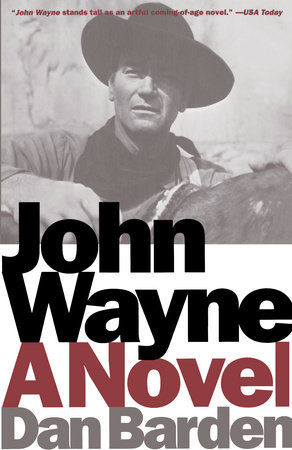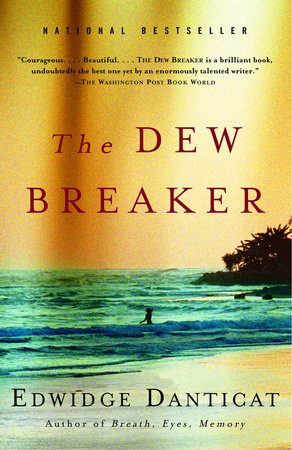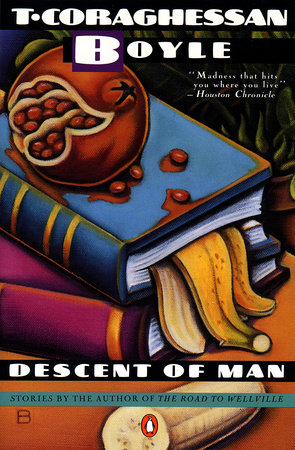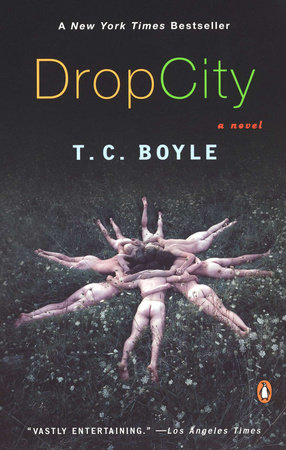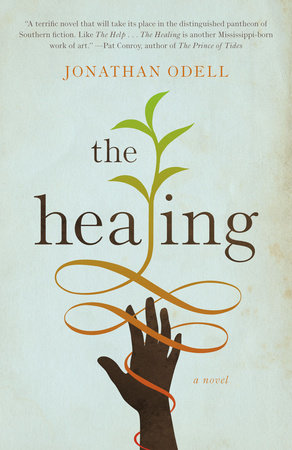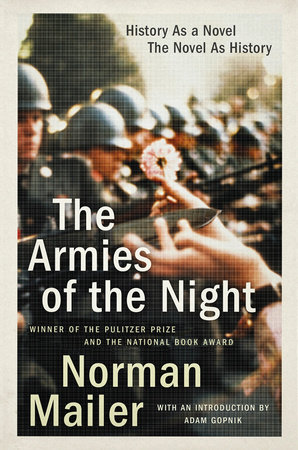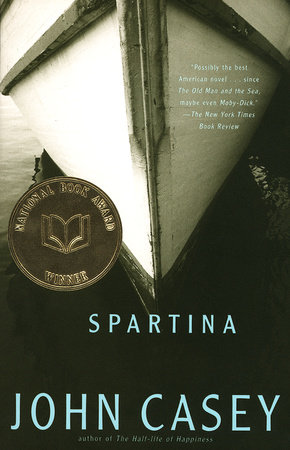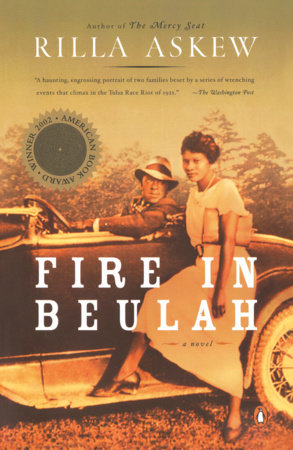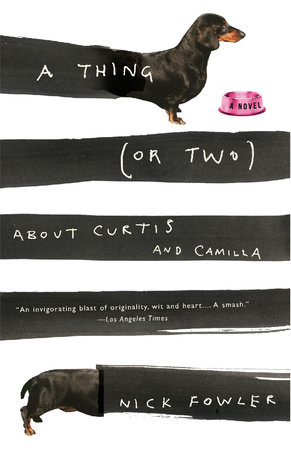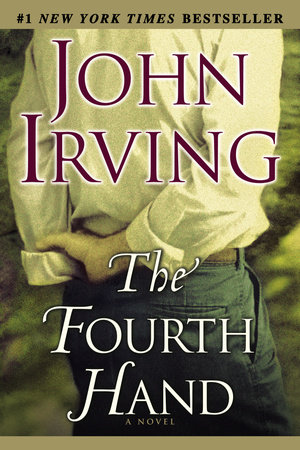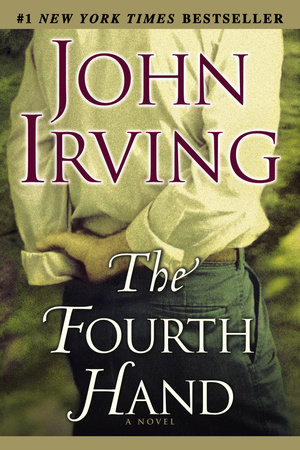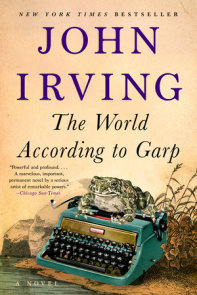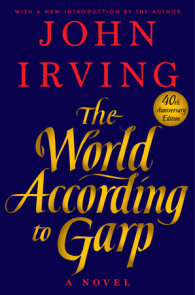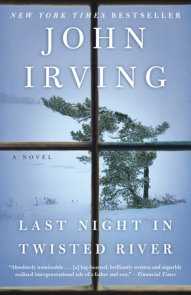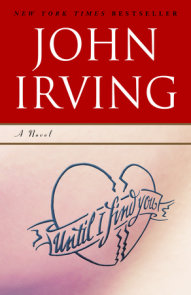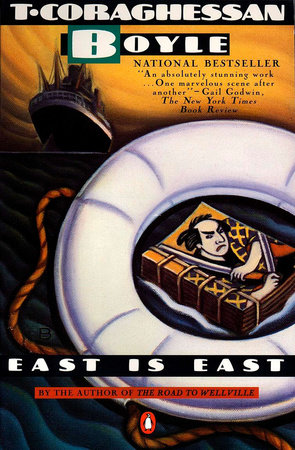Author Q&A
Why I Wrote The Fourth Hand When I Wrote It
My sixth novel,The Cider House Rules, was published in 1985,by
which time I had already started my seventh, A Prayer for Owen
Meany.That year I also began writing the screenplay of Cider House,
for which (fifteen years later)I would win an Academy Award.But
the first draft of that screenplay was a nine-hour movie;it wouldn ‘t
have won anybody an Oscar.
Rewriting is what I do best as a writer.I spend more time revis-
ing a novel or a screenplay than I take to write the first raft.And
1985 marked the beginning of what has been,to date,a seventeen-
year-old habit –namely,writing at least one screenplay concurrently
with whatever novel I am writing.Nothing has helped my process
of revision more.
It sounds strange,but my novels have bene fited from my inter-
rupting them.(It ‘s mildly frustrating that the best time to interrupt
a novel is when it ‘s going well;during the novelist ‘s absence,a novel
that ‘s off to a good start only stands to get better,but a struggling
novel will become more difficult.)For two to four months,which is
about how long I need to write a draft of a screenplay,I don ‘t even
read my novel-in-progress –I try,with mixed results,to not even
think about it.And when I return to the novel,I invariably discover
new possibilities in the storytelling;these are things I would have
missed if I ‘d been a horse with blinders on,plodding ahead on a
solitary project.
In December 1998,when I was on the film set of The Cider
House Rules, it occurred to me that I would like to write a comedy,a
comedy and a love story –a book of a kind I hadn ‘t written since my
second novel, The Water-Method Man, thirty years before.
That movie set,at the end of a sixty-two-day shooting schedule,
was in Northampton,Massachusetts;the interiors of the orphanage
in the film were shot in the former Massachusetts State Hospital,in
buildings that had been derelict (and unheated)for fifteen years.It
was cold,it was snowing,and the melting snow was turning to slush.
One of the children who was acting the part of an orphan had a
runny nose and a cough.It depressed me that,for more than
twenty-five years –during the writing of seven novels and the Cider
House screenplay –I had been imagining places as abandoned and
melancholic as this orphanage hospital with its ether-addicted
doctor.
The wife of the narrator in The 158-Pound Marriage survives the
rape and pillage of her Austrian birthplace by hiding in the carcass
of a cow.In The World According to Garp,a famous woman is assassi-
nated by a man who hates women;her famous son is murdered by a
woman who hates men. In A Prayer for Owen Meany, the narrator
has his right index finger cut off by his best friend –to keep him
from being drafted during the Vietnam War.Later,the best friend is
killed –not in the war in Vietnam but because of it.
In A Son of the Circus, two children die and a dwarf is blown up
by a terrorist ‘s bomb. In A Widow for One Year, two more children
die and a prostitute is murdered –and a mother walks out on her
four-year-old daughter,not to return for thirty-five years.Such sad-
ness seemed to cry out for a comedy,if only for a change.And
wouldn ‘t a love story be a breath of fresh air?I thought so.
That night I drove home from the film set wanting to write
a novel that was both a comedy and a love story.It should be short,
I thought –if not a short novel by other people ‘s standards,at
least short for me.(Since The World According to Garp, which was
published in 1978,my novels have been long.)The problem was,
I had already started the research for another novel –another
long one.
Once in the spring of 1998,and again in the fall of that year,I
had visited Edinburgh, Amsterdam, Stockholm, Oslo, Copenhagen,
and Helsinki.The novel,which concerns the doomed relationship
between the daughter of an Edinburgh tattoo artist and a church or-
ganist who abandons her,is neither a comedy nor a love story.The
tattoo artist ‘s daughter becomes a tattoo artist herself;the church
organist is addicted to being tattooed.Their illegitimate son tells
the story.
Until I Find You, which I am still writing,is my first first-person
narrative since A Prayer for Owen Meany, but it was not the novel I
was thinking about as I drove home from Northampton that day.
And only a month later,in January 1999,my wife,Janet,gave me
the idea that set The Fourth Hand in motion. As I say in the Ac-
knowledgments,we were watching the news on television –a story
about the first hand-transplant surgery in the United States.Janet
wondered what would happen if the hand-donor ‘s widow wanted to
visit her late husband ‘s hand –that is,after the attachment surgery.
And there it was:a comedy and a love story,surely.In forty-eight
hours, I knew more about The Fourth Hand than I knew about the
novel I had been trying to begin for a year.I put my notes on Until I
Find You away;I wouldn ‘t return to that novel for three years.
The Fourth Hand starts out as a comedy –even a satire,even a
farce –and ends up as a love story.Patrick Wallingford, the hand-
recipient,is a largely comic character –at least until he falls in love
with the widow,Mrs.Clausen.Dr.Zajac,the hand-surgeon,is a
comic character,too.In the earliest chapters,the doctor and his pa-
tient are on a comedic collision course.But the real collision (be-
tween Wallingford and Mrs.Clausen)you don ‘t see coming,and
with it comes a change in tone.
The first,comic chapters of the novel are short;they are a jum-
ble of quick cuts,not unlike the truncated news on television,which
is Patrick Wallingford ‘s dissatisfying and super ficial business.The
later chapters,beginning with Mrs.Clausen ‘s eleventh-hour intro-
duction into the story –and especially after Wallingford loses his
left hand for the second time –are longer and slower;the narrative
reins in its hectic pace.When Wallingford falls in love with Mrs.
Clausen,the comedy vanishes and a melancholy familiar to readers
of my more recent novels creeps in.
There are love stories about people who seem "meant for "
each other;there are those couples who strike everyone as "belong-
ing "together.Not Patrick Wallingford and Mrs.Clausen.He is
careless and shallow –as vacuous as television journalists often
are –while she is thoughtful and deep.Wallingford has never grown
up;in his ex-wife ‘s opinion,he ‘s still a boy.Mrs.Clausen,on the
other hand,is very much an adult;she is emotionally and psycho-
logically complex.And,as she points out to Patrick at the end of the
novel,she ‘s lost more than a left hand –she ‘s lost a husband she
truly loved.
When Wallingford tells Mrs.Clausen that he loves her,the best
she can tell him is that she ‘s going to try to love him,too.He has to
accept her as she is;she is giving him what she can,which is all she
has left.For a novel with such a comic beginning, The Fourth Hand
isn ‘t the least bit funny at the end.The love story eclipses the
comedy,and it ‘s a dark and grown-up love story –a commitment
with an uncertain future.Both characters are taking a risk.
And perhaps what ‘s missing from The Fourth Hand is as interest-
ing as what the novel contains.In my nine other novels,the passage
of time –usually a lifetime but always a signi ficant number of
years –is as important to the story as a major character.In the other
novels,the effect of the passage of time is central to the plot.Not
much time passes in The Fourth Hand.(About five years,maybe?)
Furthermore,it is my usual practice to give at least one major char-
acter a childhood;the effect of childhood on my characters (as
adults)is also central to my story-telling.But Patrick Wallingford ‘s
childhood is mentioned only in passing,and Mrs.Clausen ‘s not at
all.(Remember:I wanted The Fourth Hand to be a relatively short
novel.)
In the years I was writing the screenplay of The Cider House
Rules, I radically reduced the childhood of the main character.In the
novel, Homer Wells ‘s childhood is a whole chapter –the first one.
In the movie,Homer ‘s childhood and his several failed adoptions
are brie fly sketched in a montage that plays over the opening cred-
its.In the novel, Homer leaves the orphanage for fifteen years; in
the film, he stays away for only two .
It was screenwriting that taught me how to tell a story without
establishing the life of a main character in a childhood,and without
a signi ficant passage of time.In these two respects, The Fourth Hand
is very much a post-screenplay novel.A view from a window –not a
whole view,and not of a whole life.Three characters whose lives
cross –a doctor,his patient,and the provider of a missing body-
part.We know them only as well as people we ‘ve known for just a
few years.
Wallingford doesn ‘t really need a new left hand;he can learn
to live without one.(As a medical ethicist might say,a hand is not
essential in order to live .)What Wallingford needs is a new life, a
real one.
What Mrs.Clausen wants is a baby,and she uses her late hus-
band ‘s hand to get one.When we see her in Dr.Zajac ‘s office, where
she first meets Wallingford and so forcefully seduces him,we think
(as Wallingford does)that she must be crazy.But Mrs.Clausen is
both the sanest and the saddest person in the novel;her feet are very
firmly on the ground.Theirs is a collision between a woman as
fiercely determined as American football and a man as insubstantial
(but good-looking)as his anchor role on TV news.
That day on the film set of The Cider House Rules ,I dreamed
about writing a comedy and a love story.I wanted it to be short,and
it was.I wanted it to be funny and romantic,and I think it is.But I
also wanted to escape the melancholy of so many of my novels,es-
pecially the more recent ones –and I couldn ‘t.From the moment I
met Mrs.Clausen,she brought her own melancholy with her.Like
the lion guy,I was irresistibly rawn to her.The Fourth Hand be-
came her story;even the title is Mrs.Clausen ‘s invention.She is not
to be denied.
–John Irving
